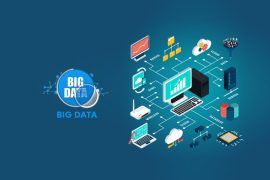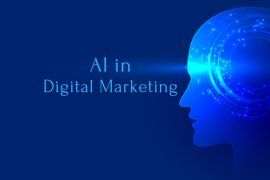With the use of artificial intelligence (AI), corporations have been able to rethink how we live, work, and play completely. And it’s moving very quickly.
Table of Contents
Project Managers’ Main Concern

Now that’s a significant change. A major change. A degree of change that the majority of project managers have never encountered during their employment.
Will AI be a help or a threat? This is the most frequently asked question at the numerous conferences and events I attend and speak at.
The topic of “AI and the Project Manager: How the Rise of Artificial Intelligence Will Change Your World” was thoroughly discussed.
A tiny percentage (3%) and a few more (10%) think that the advent of AI in project management may have reached its “endgame” when it comes to eliminating the need for the job of the project manager entirely.
However, 78% believe that project managers (and project management) still have a future, which I personally have never questioned. We just need to find the ideal application and partnership.
Benefit and Use in Real Life
All points of view may be partially accurate, but what does this actually mean for a project manager leading an unusual project?
The challenge would be figuring out the best method to collaborate with AI to provide the best level of support for busy project managers. AI might be beneficial in many ways.
To motivate teams and guide them in a productively collaborative way, project directors have always needed good communication, negotiation, and emotional intelligence skills in today’s culture.
Project managers should be able to concentrate more on this project leadership skill set thanks to AI, leaving the non-people components of project management largely in the hands of technology.
Is a Relationship Between AI and Project Management Beneficial?
Perhaps we all need a bit more knowledge and comprehension of what constitutes artificial intelligence in order to answer, or at least start to answer, that issue (AI).
AI can be divided into four main categories:
- Automation of the project management process
- Chatbots in the vein of project assistants
- Implement artificial intelligence via machine learning
- The state of the autonomous project manager in the future
Process Automation
This ability to coordinate and integrate tools, people, and processes within a defined workflow is also referred to as business process automation.
It seeks to lessen human error, permit quicker problem-solving and decision-making, and enable a more effective resource allocation for higher overall efficiency. In order to gain more knowledge and produce a more balanced result, it also conducts this over the entire landscape of the portfolio.
Using pre-programmed logic and rules, for instance, to enable auto-scheduling, track the progress and status of activities completed by project team members, and alert a (human) project manager for intervention only in exceptional circumstances are a few examples.
Chatbots
Instead of offering direct contact with a real human agent, a chatbot is a software application that is used to conduct an online chat conversation using text or text-to-speech. Through messaging systems, it may communicate with people and automate interactions.
Natural language processing, or NLP, is at the core of chatbot technology and serves as the foundation for voice recognition systems used by virtual assistants like Google Now, Apple’s Siri, and Microsoft’s Cortana.
Most likely, our interactions with such technology and the joy of “chatbotting” our way through a customer support system when something goes wrong with a service or product have made us all most familiar with chatbots.
On the basis of speech or text recognition, chatbots in project management can serve as project assistants engaging with the (human) project manager. They will be able to handle routine duties like scheduling meetings, keeping track of progress management, and reminding the team of deadlines.
Machine learning
Predictive analytics is made feasible by machine learning, and it can advise the (human) project manager on how to steer the project given particular parameters or how to handle problems and risks, always with the overarching goal of achieving the optimal conclusion for the project.
For ML, there are four learning strands:
- Deepmind uses AI agents to cool Google Data Centers, gathering snapshots of data every five minutes and feeding this to deep neural networks to forecast how different combinations will effect future energy consumptions. This process is known as reinforcement learning.
- Data is labelled, and the system is trained to connect each dataset with the labelled result—diagnosing x-ray results—through supervised learning.
- An expert system could assist a clinician in making the right diagnosis based on a cluster of symptoms using rules-based learning, which entails recording a set of rules that represent all the knowledge about the data set.
- Without labels, but with enough guiding indicators, an unsupervised learning algorithm may correctly classify data, clustering DNA patterns to study evolutionary biology.
Autonomous PM
Think about those autonomous and self-driving autos. The amount of human input required by an autonomous project management system would be minimal (presumably an experienced project manager). Due to the use of several AI technologies, a learning software package, and real-time data inputs as opposed to past project data, it would mostly be self-sufficient.
Do not feel overly threatened, as there are no actual examples of totally autonomous project management at this time.
3 Major Asks for PMs
In relation to the overall debate between AI and project management, we should consider the following two issues:
- What will the project managers of the not too distant future do?
- And how will project managers re-direct their efforts in light of the application of the time freed up by AI dealing with the 80% of present tasks?
In the “new AI normal” future, project managers will:
- Reorient their daily efforts in the direction of people by making use of all that AI information and predictive capability.
- Project managers will have more time to fully understand the complexities of people and teams thanks to the astonishing 80% reduction in work made possible by the clever application of AI.
- And what is (in my opinion) the next big step in project success? Building and managing outstanding project teams that come from anywhere they are based individually into a unified, mission-driven powerhouse.
Conclusion
This article dealt with the positives and negatives of artificial intelligence. If you’re interested in more topics like these, connect with SaaSworthy to know a lot more.






